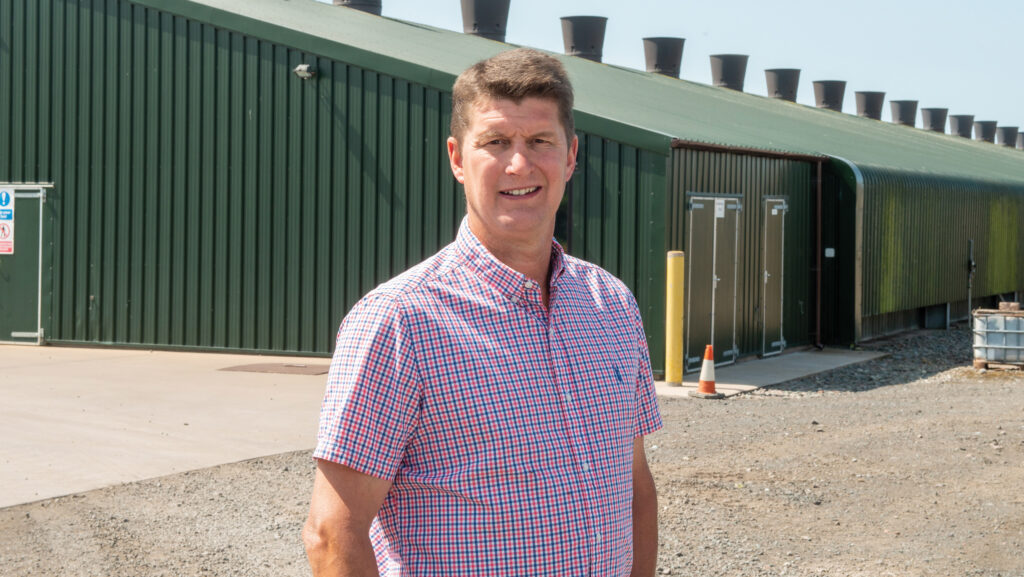Transition Farmer: Diversifications help succession planning
 © Angus Findlay
© Angus Findlay Our Farmers Weekly Transition farmers are striving to secure a better future for their businesses. We catch up with Vaughan Hodgson on his arable and poultry farm in Cumbria.
The death of Vaughan Hodgson’s father has brought into sharp focus important reasons for succession planning in a diverse family farming business.
Vaughan says he owes everything to his parents, Geoff, who passed away in June at the age of 87, and Dot, who is 82.
See also: How a Cumbrian farm plans to offset lost BPS income
“They laid the foundations for all we are doing today; the business owes everything to them,” he says.
Just as they passed the baton of responsibility to Vaughan and Sandra, the couple have brought the next generation into the business, recently making their sons, Karl, 27, and Ryan, 23, partners.
Farm facts – JG & DE Hodgson, Kirkbride, Cumbria
- Farm size: 244ha, cereals, grassland and 120,000 broilers
- Annual rainfall: 1,250mm
- Soil: Heavy red clay, silty sand, black peat
Transition goals
- Support next generation
- Replace lost basic payments
- Cope with increasingly uncertain weather
Two farm diversifications – a caustic wheat enterprise and a construction and fabrication business – have helped with that process, as each requires different skills and management.
What began as a small-scale caustic wheat business, with a second-hand mixer and a handful of local contracts, has developed into a thriving enterprise working alongside several feed consultancy firms, with Karl the driving force pushing that pace of growth.
To further drive efficiencies, an HGV and bulk trailer have also been purchased to enable in-house deliveries and collections.
Ryan is in charge of the construction and fabrication business, a “turn-key” operation which sees him delivering every stage of contracts.
He and his team also undertake all repairs, service and maintenance of the farm vehicles, reducing costs and down time.
Vaughan says it is important that farmers give the next generation more responsibility and accountability over time, with partial control of the finances and day-to-day decisions.
“If people are made responsible for business decisions, it is important to be accountable,” he reckons.
To help with succession, Vaughan and Sandra are investing money off-farm to enable their daughter to be independent of the business, and accelerating payments into their pension pot too, to secure their own financial futures.
